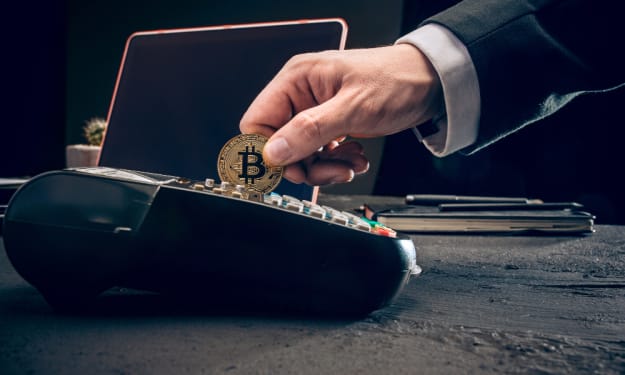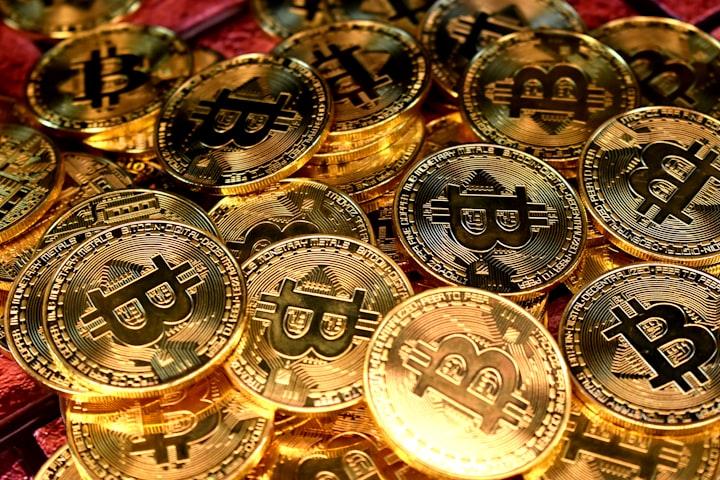What Is a Crypto Exchange and How Does It Work
Crypto market

Crypto trade is a commercial center where you can trade digital forms of money, such as Bitcoin, Ether, or Dogecoin. Digital money trades work a ton like other exchanging stages that you might know about. They give you accounts where you can make different request types to purchase, sell and guess in the crypto market.
Some crypto trades support progressed exchanging highlights like edge records and prospects exchanging, albeit these are less regularly accessible to the U.S.- based clients. Others have highlights like crypto marking or crypto credits that permit you to procure interest on your crypto property. The best trades offer instructive contributions to stay up with the latest on all things crypto.
Various Kinds of Crypto Trades
All things considered, are two classes of crypto trades: brought together trades and decentralized trades. Every classification accompanies its own benefits and burdens.
Incorporated Trades
Incorporated crypto trades (CEX) are overseen by one association. Incorporated trades make it simple, to begin with, digital money exchanging by permitting clients to change over their government-issued money, similar to dollars, straightforwardly into crypto. By far most crypto exchanging happen on concentrated trades.
Some crypto fans object to unified trades since they conflict with the decentralized ethos of digital money. Far more terrible according to some crypto clients, the organization or association might expect clients to follow Know Your Client (KYC) rules. These require every client to unveil their personality, much as you would when you apply for a financial balance, to battle tax evasion and misrepresentation.
There's one more worry with concentrated trades: hacking. With a CEX, the trade holds the crypto exchanged on its foundation — for the time being, while exchanges go through — raising the gamble of programmers taking resources.
To address this gamble, incorporated crypto trades have amplified security over the late years. Among different systems, they presently store most client resources disconnected and take out insurance contracts to cover crypto misfortunes on account of hacking.
On the off chance that you like the comfort of a concentrated trade, you can lessen your gamble by moving crypto to a different, off-trade hot or cold wallet.
Decentralized Trades
Decentralized crypto trades (DEX) circulate liability regarding working with and checking crypto exchanges. Anybody ready to join a DEX organization can ensure exchanges, similar to the way digital money blockchains work. This might assist with expanding responsibility and straightforwardness too as guarantee a trade can continue to run, no matter what the condition of the organization that made it.
The difficulty is that decentralized trades are substantially less easy to understand, from a connection point stance as well as concerning money transformation. Decentralized trades, for example, don't necessarily in all cases permit clients to store dollars and trade them for crypto. This implies you either need to currently claim crypto or utilize a unified trade to get crypto that you then use on a DEX.
You'll likewise logically be participating in direct distributed exchanges. This implies it might take more time for you to find somebody hoping to purchase what you're selling and, in the event that liquidity is low, you might need to acknowledge concessions on the cost to trade low-volume crypto rapidly.
Worldwide Crypto Trades
There are almost 600 cryptographic money trades overall welcoming financial backers to exchange bitcoin, Ethereum, and other advanced resources. In any case, expenses, quality, and security differ generally. With an accentuation on administrative consistence, Forbes Computerized Resources positioned the best 60 digital money trades on the planet.
Crypto Trade Expenses
You pay two kinds of expenses when you trade crypto: exchanging charges and withdrawal charges.
Exchanging Expenses
Exchanging expenses might be charged as a level of how much crypto you trade, or trade might separate between orders that are producers and those that are takers, charging an alternate rate in like manner.
On a fundamental level, creators are orders that add liquidity to trade, meaning they don't satisfy standing requests. Takers, in the interim, eliminate liquidity from trade by finishing orders that are sitting tight for an exchange. Contingent upon the trade, creator charges is typically somewhat not as much as taker expenses, albeit this isn't generally the situation.
While you're in a perfect world picking a trade with the most minimal expenses, harping a lot on the intricate details of creator and taker charges can be counterproductive. That is on the grounds that you can't pick whether your request is handled as a creator or a taker. All things being equal, you're better off considering generally expenses and any limits accessible for exchanging a specific sum every month or holding a trade's local digital currency.
A significant note: Some crypto venture applications guarantee to charge zero expenses, yet this isn't completely exact. Rather than charging you, by and large, they charge a spread — that is the contrast between the rate at which they trade crypto. Spreads can, and habitually do, end up substantially more costly than if you paid a rate exchanging charge.
Withdrawal Expenses
Many trades charge expenses to pull out coins from their foundation. This can be an issue on the off chance that you like to move your crypto to a solid outsider wallet or onto another trade. Withdrawal charges regularly change by digital money.
Assuming you expect to move your crypto off of a trade, you ought to pick a stage that permits a specific measure of expense-free withdrawals, similar to Gemini.
Different Expenses
In the event that you participate in further developed exchanging systems, similar to edge exchanging, there are extra charges related to acquiring cash. Amateur amicable trades like Coinbase and Gemini offer fast purchase includes that charge higher expenses. You can stay away from them by figuring out how to trade on a trade's exchanging stage.
In the event that you make buys utilizing a Visa or check card, you might be charged an exceptional by both the trade and your card backer. That is the reason it's ideal to purchase crypto with money or wire moves.
Step-by-step instructions to Pick a Crypto Trade
Past charges, while picking the best crypto trade for your requirements, consider things like security, exchanging volumes, instructive assets, and whether a trade records the digital currencies you're keen on purchasing.
Security
As crypto has developed more well-known and important, it's turned into a major huge objective for programmers. Driving trades like Binance and KuCoin have been hacked, bringing about a huge number of dollars in misfortunes. While trades frequently repay those whose coins are taken, no one needs to be there in any case.
You can limit your gamble by spreading your crypto buys across numerous trades. On the other hand, regularly practice it to move your crypto property out of a trade's default wallet to your own protected "cold" wallet. These are stockpiling choices that are not associated with the web, making them almost difficult to hack — in spite of the fact that you'll have to painstakingly record your password or you could lose admittance to your crypto for eternity.
Accessible Coins
Cautiously think about the digital currencies accessible on a given trade. You may be totally fine utilizing a crypto trade that mainly exchanges a couple of coins. On the other hand, on the off chance that you're a crypto rascal, you might need admittance to all of the more than 600 accessible on Gate.io.
Exchanging Volume
The accessibility of coins alone isn't adequate assuming there are no exchanges occurring. You'll in a perfect world need to check that there's an adequate exchanging volume of your objective coins to guarantee liquidity, so you can without much of a stretch exchange your coins and dollars.
Low-volume markets could cost you on deals. On the off chance that there's not much volume and you put a request in, that is called slippage. You could wind up purchasing at a greater cost or selling at a lower cost than you'd need.
On the off chance that you're a high-level crypto dealer, you might need to ensure your favored trade offers the exchanging types — like breaking point orders, which can forestall slippage by setting a hard value — and the edge you need. Recall exchange types including the last option are as yet developing in the U.S., so various trades' contributions might change over the long run.
Instructive Assets
On the off chance that you're simply getting everything rolling with cryptographic money, search for a simple to-utilize stage with a lot of instructive assets to assist you with figuring out this complex, quickly creating market.
Openness
At last, don't expect that trade is accessible in your nation, or even state, since you can get to its site. Many state and central legislatures are as yet sorting out how precisely they need to treat cryptographic forms of money from a lawful and charge viewpoint.
If you like to get rich with bitcoin you can get access from
>>Here<<How To Get Rich With Bitcoin Even If You Have No Clue About Technology
Do you like to Reap Massive Crypto Profits?
About the Creator
Sithum Chathumina
I am an experienced cryptocurrency trader and I am an expert in trading






Comments
There are no comments for this story
Be the first to respond and start the conversation.